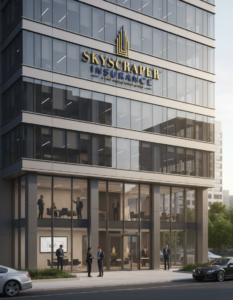The decisions of school officials across the U.S. could bring new liabilities related to virus transmission.
A Georgia high school that made headlines for its packed hallways and unmasked students announced Aug. 9 that it would close for at least two days after it identified nine cases of COVID-19. Six students and three staff members tested positive for the virus after the first week of in-person instruction at the school, one of the first to reopen for the 2020-21 school year amid debate around the best way to resume learning during the pandemic. Many K-12 schools and colleges across the U.S. remain undecided over whether students will return this fall in person, virtually or a combination of both.
That uncertainty has worsened in recent days as reports emerge of increased COVID-19 cases in children. A new report from the American Academy of Pediatrics and the Children’s Hospital Association revealed a 90% increase in COVID-19 cases among children between July 9 and Aug. 6, bringing the total of pediatric cases to 380,174, or about 9.1% of all cases. In addition, more than 6,600 COVID-19 cases and 14 deaths have been linked to college campuses since the pandemic began.
“Reopening schools is going to be very difficult,” said Justin Dorman, national product manager, workers’ compensation, Burns & Wilcox in Charleston, S.C. “We have already seen some really harsh impacts with the spike in COVID cases in places where you have students in confined spaces. How to do this safely is still a work in progress.”
Whether school officials have students return in-person or online, their decisions could bring new liabilities related to virus transmission or even digital learning — making directors & officers (D&O) insurance, employment practices liability insurance (EPLI), cyber and privacy insurance, and workers’ compensation insurance necessary for all educational institutions.
“There are a lot of challenges and many unknowns,” said Matthew Lefchik, director, cyber risk management, Node International. “There are so many organizations that are still trying to navigate through the nuances of what the risks could be: not just the health risk, but the cybersecurity risk.”
School board decisions in the spotlight as cases rise
In Florida, where the state’s largest teachers union is suing over a state mandate that K-12 schools must reopen in-person five days per week, COVID-19 cases in children have increased 137% in the last month. While school districts and colleges must adhere to state guidelines, local school boards are ultimately responsible for reopening plans in many areas. The decisions made by these governing boards — from student housing capacity at colleges to desk spacing in elementary schools — could become the subject of lawsuits under an institution’s D&O insurance. This type of policy covers board members in their decisions and actions in their roles.
If there was a misjudgment made in the decision-making process, that can potentially become a D&O claim. It could be the timing of their reopening plan or the way they operated while open. Additionally, if COVID cases rise and schools decide to close again and go 100% remote, any of those decisions made can be scrutinized and possibly turn into a D&O claim.
Even during the summer semester, many colleges have seen COVID-19 spread among students and staff. At least 136 fraternity house residents and six other students were infected with COVID-19 at the University of Washington in Seattle, and Harris-Stowe State University in St. Louis closed its campus in July after eight administrators tested positive for the virus. At Appalachian State in North Carolina, six employees and 47 students tested positive, in addition to 41 subcontractors who were working on campus construction projects.
As more staff report to work at both K-12 schools and colleges, an increase in EPL lawsuits is also anticipated. Hundreds of COVID-related EPL lawsuits have already been filed against employers. Lawsuits could allege Americans with Disabilities Act discrimination if staff members with health conditions are not appropriately accommodated, and wage and hour cases could result if teachers are asked to don PPE, subject to health screenings or perform other unpaid work before officially starting their workday. For instance, if it is an hourly employee, they need to be compensated for that time.
Lawsuits related to protected whistleblowing activity are also expected — whistleblower cases are when someone sees something in the workplace and speaks up about it, and they are retaliated against. Consider the recent story of the Georgia student who was suspended after posting photos from her high school’s crowded hallways. If it had been a staff member and they were fired, that would be a retaliation whistleblower suit under the EPL Insurance.
As information and guidelines change, most school districts and colleges have made multiple versions of their reopening plans. Schools are in a tough position, and they are really working hard to accommodate not only their staff but their students. Schools should review their D&O and EPL insurance so they are ready to confront a potential wave of lawsuits. If they have the coverage, they should keep it or improve on it. Now is not the time to pull back on the coverage to save money, as we know more lawsuits are coming.









